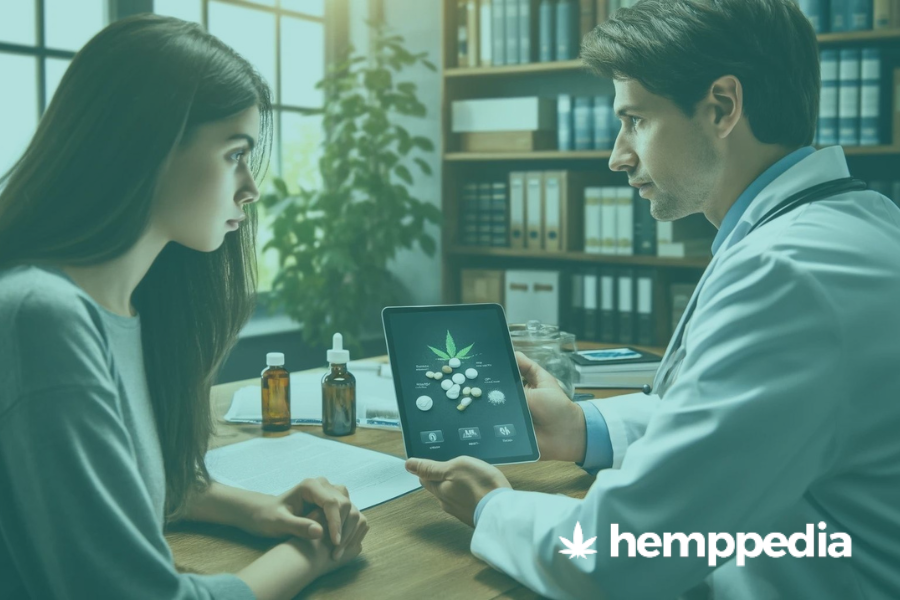CBD Oil: The New Miracle Drug?
Once viewed with suspicion and even alarm, cannabidiol (CBD) oil has surged in popularity in recent years, with sales in the US doubling since 2017. With an estimated quarter of a million users in the US relying on CBD oil to treat a range of complaints, including chronic pain, anxiety, and sleep problems, it has become the first-choice drug for many and can be legitimately purchased over the counter from some pharmacies and health shops.
In fact, due to its widespread availability, its treatment for a myriad of conditions and its prominence in the media, CBD oil is regarded by some as a ‘miracle drug’ although scientists have yet to carry out detailed studies of its efficacy.
What is CBD oil?
Cannabidiol is a natural chemical compound that is extracted from Cannabis Sativa, the cannabis plant from which the illegal drug is manufactured. In fact, cannabis Sativa contains over one hundred compounds of which CBD is only one, but it is its association with the plant that has caused confusion and suspicion in some parts of society.
CBD oil is created by mixing the extracted compound with oil from another plant, such as hemp seed or coconut oil. Crucially, however, it does not contain tetrahydrocannabinol (THC) that is found in illegal cannabis and causes the sensation of being ‘high’, so CBD oil is neither addictive nor euphoric.
CBD oil can be manufactured in different ways including tinctures, capsules, lotions and vaping.
The Age-Old Question: Is CBD Oil Safe?
The use of any compound from a plant associated with illegal drug use is bound to raise questions about its safety and efficacy, but as scientific studies are proving, CBD oil has some positive health benefits to treat a wide range of conditions and complaints.
Pain relief: many patients have found that application of CBD oil, either topically or under the tongue, have relieved the pain caused by conditions such as arthritis and multiple sclerosis. A study from 2015 demonstrated that mice with arthritis experienced a significant improvement in their pain levels only four days after receiving treatment with cannabidiol with no significant side effects on their health1
Reduced anxiety and depression: usually treated with prescription drugs that often carry side effects, anxiety, and depression improves with CBD oil therapy by lowering the body’s stress hormones and reducing its stress response. With this treatment, the body can access chemicals such as serotonin and anandamide, resulting in improved mood and less anxiety.
Related article: CBD for Anxiety
Restful sleep: insomnia and other sleep problems are a common complaint in modern society, but CBD oil promotes more restful sleep. In part, this is achieved by reducing the obstacles to people enjoying prolonged deep sleep, such as anxiety and chronic pain.
Related article: CBD for Insomnia
Improved acne: affecting nearly one-tenth of the population, acne is a troublesome skin condition that also causes psychological effects for sufferers including low mood and depression. Recent research has suggested that cannabidiol oil may have powerful anti-inflammatory properties and reduces sebum, an oily substance produced in skin glands that are thought to be a cause of acne.
While the benefits of CBD oil certainly sound promising, a key consideration is whether it is safe to use. Firstly, cannabidiol is not addictive and, unlike illegal drugs, the body does not develop a resistance to it, so a patient can start and stop treatment without developing a dependence. Secondly, as CBD oil contains little to no THC, a patient will not experience psychotropic symptoms such as a ‘high’; in common with many plant-based supplements, cannabidiol works gently on the body to produce a gradual healing effect.
It’s important to remember that, like many medications, CBD oil may cause side effects, and these should be monitored carefully once treatment has begun. Also, experts have yet to agree on the most effective dosage levels to treat different conditions.
Importantly, however, the World Health Organisation2 has recognized that CBD oil ‘may be a useful treatment for a number of medical conditions’ and ‘is generally well-tolerated with a good safety profile’.
Side Effects Of CBD Oil
Like most medications or supplements, cannabidiol is usually tolerated well but may cause side effects in some users.
A study carried out by the National Center for Biotechnology Information3 observed the following most common CBD oil side effects:
- Diarrhea
- Fatigue
- Weight gain/loss
- Changes in appetite
- Dizziness
- Drowsiness
- Dry mouth
- Nausea/vomiting
If you’re considering using CBD oil for the first time, you should consult your doctor in advance, particularly if you are already taking medications or health supplements. This is very important if the medication or supplement has a warning about eating grapefruit, as CBD oil may affect enzymes that assist with the metabolism of drugs in the same way that the citrus fruit does. Furthermore, a report by the American Academy of Pediatrics 4 observed that even short-term use of cannabidiol could affect the efficiency of the placenta in pregnant women, so patients who are expecting or breastfeeding should consult a doctor before starting to use CBD oil.
Sourcing Cannabidiol
While there is a wealth of information available online and from pharmacies about the benefits and side effects of CBD oil, it is extremely important to source it from a reputable supplier. Some investigations, such as one by the Centre for Medical Cannabis5, have discovered that some cannabidiol products contain a negligible amount of the compound at best, while others have detectable levels of THC, making them illegal in many countries.
As with any medication or supplement, only obtain CBD oil from a trustworthy supplier so you can be confident that you are purchasing a legitimate product that will make a significant difference to the quality of your health.
References
- Hammell, D., Zhang, L., Ma, F., Abshire, S., McIlwrath, S., Stinchcomb, A. and Westlund, K. (2015). Transdermal cannabidiol reduces inflammation and pain-related behaviors in a rat model of arthritis. European Journal of Pain, 20(6), pp.936-948. [↩]
- Expert Committee on Drug Dependence (2018). CANNABIDIOL (CBD). [online] World Health Organization [↩]
- Iffland, K. and Grotenhermen, F. (2017). An Update on Safety and Side Effects of Cannabidiol: A Review of Clinical Data and Relevant Animal Studies. Cannabis and Cannabinoid Research, 2(1), pp.139-154. [↩]
- Ryan, S., Ammerman, S. and O’Connor, M. (2018). Marijuana Use During Pregnancy and Breastfeeding: Implications for Neonatal and Childhood Outcomes. Pediatrics, 142(3), p.e20181889. [↩]
- BBC News. (2019). Are CBD health claims stretching the truth?. [online] [↩]



